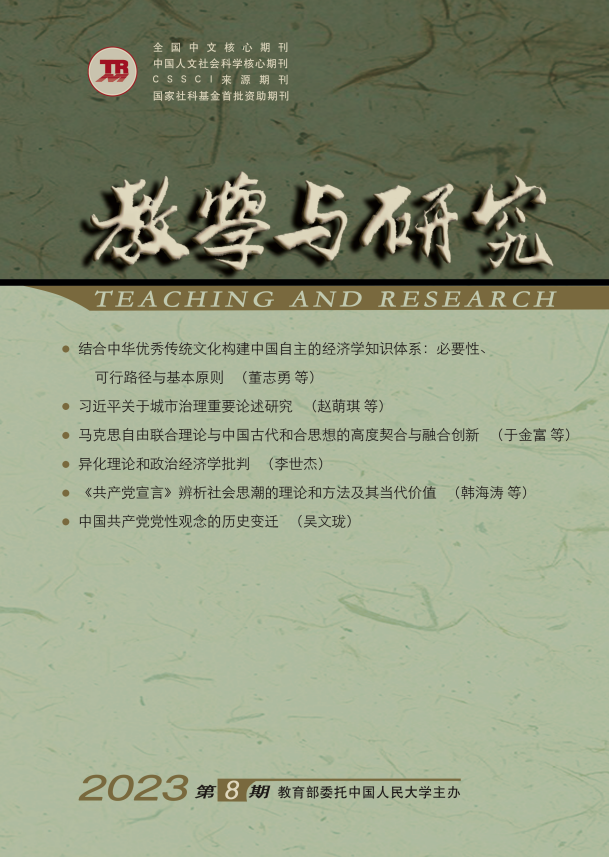How to achieve scientific and effective urban governance in a developing socialist country is a difficult question left to Chinese Communists by history, the times and the people. Since the 18th National Congress of the Communist Party of China (CPC), Xi Jinping has made a series of important statements on the major issues of what kind of urban governance and how to realize urban governance in the new era, which constitute a scientific theoretical system that is rich in connotation, systematic and complete, and keep abreast of the times. In terms of generative logic, it draws on and sublimates the classic Marxist urban theory, continues and extends the centuryold experience of the CPC concerning its work in urban areas, and reflects and responds to the complex reality of urban governance in the new era. In terms of scientific connotation, it clarifies the overall goal, value orientation, fundamental guarantee and basic development law of urban governance. In terms of practical pathways, it summarizes the key fields, necessary pathways, internal requirements, practical methods and global vision of urban governance. In terms of value implications, it realizes the innovative development of the classical Marxist urban theory, provides the fundamental guideline and action guide for Chinas urban governance, and contributes Chinese solutions to the cause of urban governance in the world.



